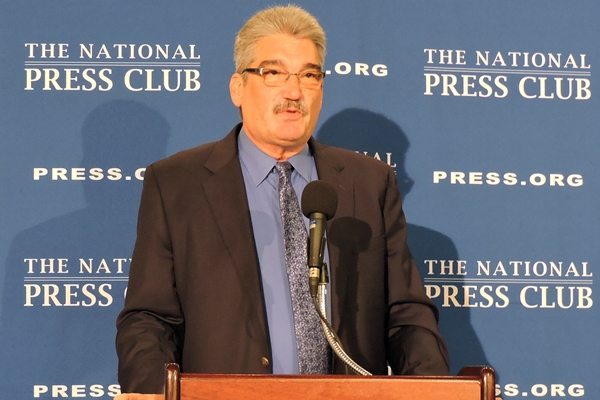1 November 2016. A clinic to provide cancer treatments that use a patient’s immune system cells engineered to fight cancer is open at the Fred Hutchinson Cancer Research Center in Seattle. Gary Gilliland, president of the Fred Hutch center and David Maloney, medical director of the clinic, discussed the new facility at a broadcast press conference in Washington, D.C.
The Bezos Family Immunotherapy Clinic, named for the family of Jeff Bezos who started Amazon.com and that made significant contributions to the center for immunotherapy since 2009, is expected to double the capacity for immunotherapy patients and the number of clinical trials in these new treatments. The clinic has 15 beds and facilities for support staff needed to provide intensive monitoring of patients, as well as outpatient services at the affiliated Seattle Cancer Care Alliance. While the clinic officially opened today, it started serving patients on 10 October and treated 188 individuals visiting the facility since then.
Maloney explained at the press conference that the Bezos clinic will further test and eventually provide treatments for patients using small numbers of their own T-cells, white blood cells from the immune system, modified to attack cancer cells. T-cells are engineered with added synthetic molecules known as chimeric antigen receptors. Without these added weapons, cancerous cells evade the immune system, allowing tumors to grow unchecked. The chimeric antigen receptors added to T-cells, called CAR-Ts, are designed in this case to attack cancer cells identified with specific biomarker targets, indicators of blood-related cancers.
As reported in Science & Enterprise, CAR-T treatments in clinical trials achieve high rates of response — up to 90 percent — among individuals with relapsing or persistent B cell acute lymphoblastic leukemia, a cancer of blood and bone marrow that progresses quickly, making an overabundance of immature lymphocytes, a type of white blood cell. It is also the most common type of cancer among children, although it can affect adults as well.
Maloney added that researchers at Fred Hutch center are beginning to see “encouraging signals” with CAR-T therapy against other blood-related cancers including non-Hodgkins lymphoma and chronic lymphocytic leukemia. In addition, researchers in lab studies identified promising dosage ratios — about 1 to 1 — between so-called helper and killer T-cells, genetically modified to maximize effectiveness while limiting toxicity.
However, Gilliland and Maloney noted that a lot of work remains with CAR-T and related therapies to understand why some patients do not respond, and to expand the treatments to solid tumor cancers, which are far more numerous than blood-related cancers.
In response to a question from Science & Enterprise, Gilliland said commercialization is an important step in getting these new immunotherapies into clinical practice, with companies like Juno Therapeutics licensed to develop the technology further and carry out clinical trials. While Gilliland added that 42 companies are spun-off from Fred Hutch center, which is always seeking new commercial partners, he did not indicate if companies other than Juno Therapeutics are being considered for licensing its immunotherapy discoveries.
Read more:
- Trial Shows Engineered T-Cells Can Stop Lymphoma
- PhRMA: 258 Vaccines in Clinical Development
- Molecular Express, Baylor Medicine Partner on Vaccines
- Amgen, Advaxis Partner on Personal Cancer Immunotherapy
- Leukemia T-Cell Trial Stopped After Patients’ Deaths
* * *


 RSS - Posts
RSS - Posts
You must be logged in to post a comment.